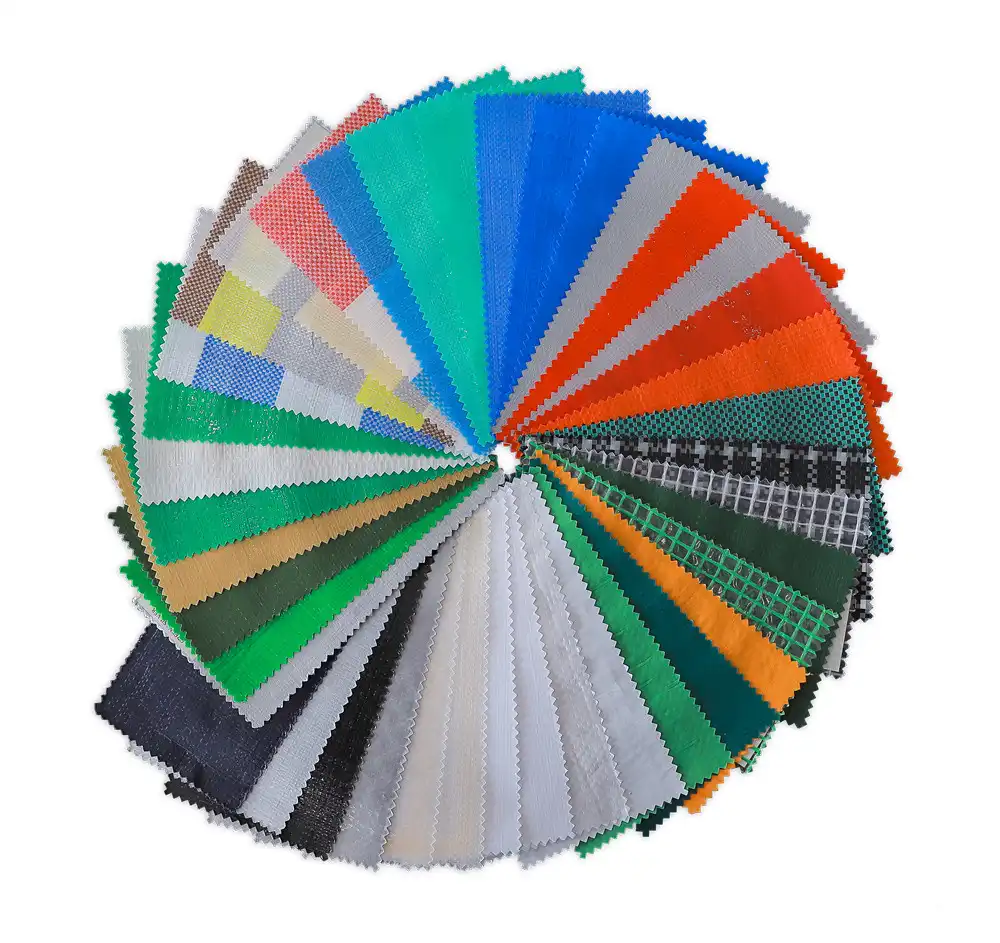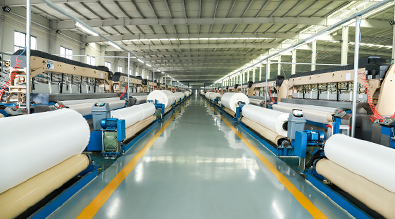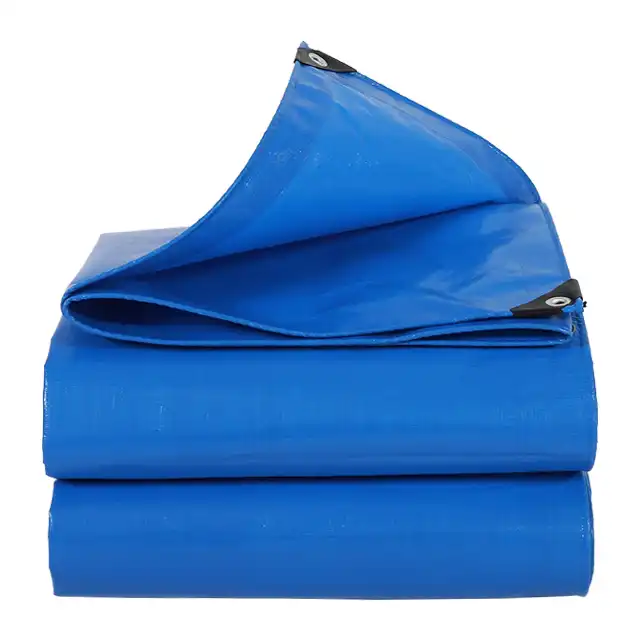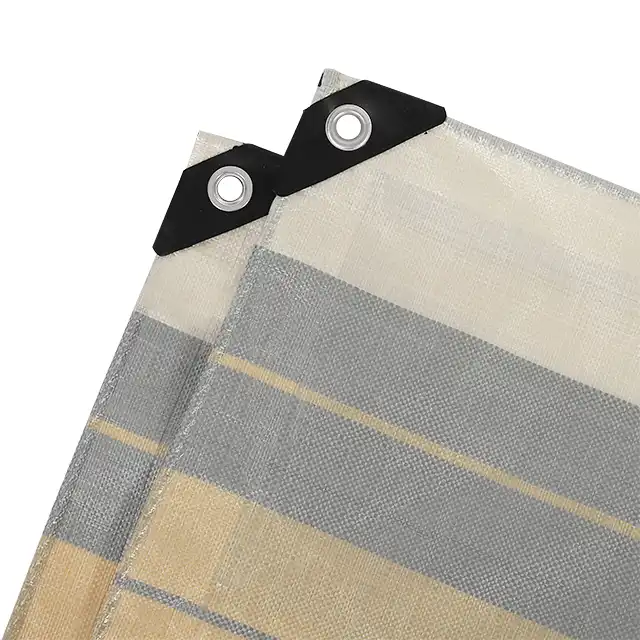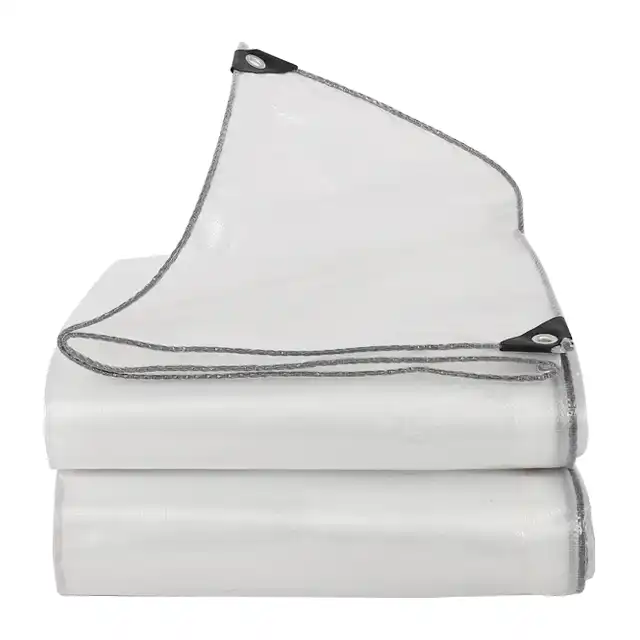Large Tarpaulin Truck Covers vs Car Tarpaulins: Which Do You Need
Choosing the right protective covering for your vehicles and cargo requires understanding the fundamental differences between large tarpaulin truck covers and car tarpaulins. The decision between these two options depends on your specific requirements, application scenarios, and protection needs. Large truck tarpaulin covers are engineered for heavy-duty commercial applications, offering superior durability, weather resistance, and load protection capabilities compared to standard car tarpaulins. These industrial-grade covers are designed to withstand harsh environmental conditions, protect valuable cargo during transportation, and meet stringent commercial requirements. Understanding these distinctions will help you make an informed decision that ensures optimal protection while maximizing your investment value.
Understanding the Fundamental Differences Between Truck and Car Tarpaulins
Size and Dimension Requirements
 Large truck tarpaulin covers are manufactured to accommodate the substantial dimensions of commercial vehicles and their cargo loads. Professional truck tarpaulin systems typically range from 8 feet to over 40 feet in width, with customizable lengths extending beyond 100 feet when necessary. These massive dimensions require specialized manufacturing processes and advanced weaving technologies to ensure structural integrity across such expansive surfaces. The production of wide-width truck tarpaulin involves sophisticated machinery, including 5-meter and 4-meter width fabric weaving machines that can create seamless coverage without joints or weak points. This seamless construction is crucial for maintaining waterproof barriers and preventing cargo damage during long-distance transportation. In contrast, car tarpaulins are designed for passenger vehicles, typically measuring between 12 to 20 feet in length and 6 to 8 feet in width, making them significantly smaller than their commercial counterparts.
Large truck tarpaulin covers are manufactured to accommodate the substantial dimensions of commercial vehicles and their cargo loads. Professional truck tarpaulin systems typically range from 8 feet to over 40 feet in width, with customizable lengths extending beyond 100 feet when necessary. These massive dimensions require specialized manufacturing processes and advanced weaving technologies to ensure structural integrity across such expansive surfaces. The production of wide-width truck tarpaulin involves sophisticated machinery, including 5-meter and 4-meter width fabric weaving machines that can create seamless coverage without joints or weak points. This seamless construction is crucial for maintaining waterproof barriers and preventing cargo damage during long-distance transportation. In contrast, car tarpaulins are designed for passenger vehicles, typically measuring between 12 to 20 feet in length and 6 to 8 feet in width, making them significantly smaller than their commercial counterparts.
Material Composition and Construction Standards
The material composition of truck tarpaulin differs substantially from car covers, reflecting the demanding operational environments these products must endure. Commercial truck tarpaulin utilizes high-density polyethylene (HDPE) with mesh counts ranging from 6×6 to 16×16, providing exceptional tear resistance and dimensional stability. The denier strength varies from 600D to 1800D, with GSM ratings between 75-400gsm, ensuring adequate thickness and durability for heavy-duty applications. Professional truck tarpaulin undergoes specialized treatments including UV stabilization, anti-fungal coating, and flame-retardant processing to meet industry safety standards. The manufacturing process involves multiple quality control stages, from yarn extrusion using 30+ high-tech extruding machines to fabric coating with professional-grade machines operated by experienced technicians. This comprehensive approach ensures that truck tarpaulin maintains its protective properties under extreme weather conditions, temperature fluctuations, and mechanical stress that commercial vehicles encounter during regular operations.
Application-Specific Design Features
Truck tarpaulin incorporates specialized design elements that distinguish it from standard car covers, including reinforced grommets, heavy-duty edge binding, and industrial-strength fastening systems. Professional truck tarpaulin features stereo edging with durable rope integration, high-temperature heat-sealed folds that prevent water infiltration, and metal aluminum grommets positioned strategically along the perimeter for secure attachment. These design elements are engineered to withstand the dynamic forces generated during highway transportation, including wind resistance, vibration, and loading/unloading operations. Additionally, truck tarpaulin often includes specialized corner reinforcements with plastic corners that distribute stress loads and prevent tearing at high-stress points. The heat-folding process ensures that all edges are properly sealed without pinholes, maintaining waterproof integrity essential for protecting sensitive cargo from moisture damage during extended transportation periods.
Selecting the Right Tarpaulin Based on Your Specific Needs
Commercial Transportation Requirements
When selecting truck tarpaulin for commercial transportation, several critical factors must be considered to ensure optimal performance and regulatory compliance. Professional truck tarpaulin must meet specific industry standards for cargo protection, environmental resistance, and safety protocols established by transportation authorities. The selection process begins with evaluating the types of cargo being transported, as different materials require varying levels of protection from moisture, UV radiation, and temperature fluctuations. For instance, agricultural products may require breathable truck tarpaulin that allows air circulation while preventing moisture infiltration, whereas manufactured goods might need completely waterproof barriers. The transportation route and seasonal conditions also influence material selection, as truck tarpaulin used in northern climates must withstand freeze-thaw cycles, while those used in desert regions require enhanced UV resistance and heat tolerance to prevent degradation and maintain flexibility under extreme temperatures.
Load Capacity and Weight Considerations
The load capacity and weight distribution characteristics of truck tarpaulin systems play crucial roles in overall transportation efficiency and vehicle performance. Professional truck tarpaulin manufacturers design their products to minimize weight while maximizing protective coverage, recognizing that every pound of tarpaulin weight reduces the available payload capacity of commercial vehicles. Advanced truck tarpaulin materials achieve optimal strength-to-weight ratios through innovative fiber compositions and weaving patterns that distribute stress loads effectively across the entire surface. The installation and removal processes must also be considered, as heavy truck tarpaulin can create safety hazards for operators and increase labor costs associated with cargo handling operations. Modern truck tarpaulin systems often incorporate ergonomic features such as lightweight construction, easy-fold designs, and integrated handling systems that facilitate quick deployment and storage while maintaining the durability required for commercial applications.
Cost-Effectiveness and Long-term Value
Evaluating the cost-effectiveness of truck tarpaulin requires analyzing both initial purchase costs and long-term operational expenses associated with maintenance, replacement, and potential cargo damage prevention. High-quality truck tarpaulin represents a significant upfront investment but provides superior value through extended service life, reduced replacement frequency, and enhanced cargo protection capabilities. Professional-grade truck tarpaulin typically offers service lives extending several years under normal commercial use, whereas lower-quality alternatives may require replacement within months, ultimately increasing total cost of ownership. The calculation of cost-effectiveness must also include potential savings from prevented cargo damage, as a single weather-related loss event could exceed the cost of premium truck tarpaulin systems. Additionally, reliable truck tarpaulin reduces operational delays caused by equipment failures, maintaining delivery schedules and preserving customer relationships that contribute to long-term business success.
Quality Standards and Manufacturing Excellence in Tarpaulin Production
Advanced Manufacturing Processes
The production of superior truck tarpaulin requires sophisticated manufacturing processes that ensure consistent quality, durability, and performance characteristics across all products. Professional truck tarpaulin manufacturing begins with yarn extrusion using advanced machinery that precisely controls fiber diameter, strength, and uniformity throughout the production run. The weaving process utilizes Korea-imported automatic water-jet looms that create precise mesh patterns while maintaining optimal tension control to prevent distortion or weak points in the finished fabric. Quality control measures are implemented at every production stage, from raw material inspection through final product testing, ensuring that each truck tarpaulin meets or exceeds established performance standards. The coating process applies protective layers using professional-grade equipment operated by experienced technicians who monitor temperature, pressure, and application thickness to achieve uniform coverage and optimal adhesion properties.
Certification Standards and Quality Assurance
Professional truck tarpaulin manufacturers maintain rigorous quality assurance programs that include third-party testing, certification compliance, and continuous improvement initiatives. ISO 9001:2015 certification demonstrates commitment to quality management systems that ensure consistent product performance and customer satisfaction throughout the manufacturing process. Independent testing laboratories evaluate truck tarpaulin products for tear strength, UV resistance, waterproofing effectiveness, and dimensional stability under various environmental conditions. These comprehensive testing protocols verify that truck tarpaulin products meet industry standards and customer specifications before shipment. Additionally, quality monitoring systems track production metrics and identify potential improvements that enhance product performance, reduce defects, and optimize manufacturing efficiency while maintaining the high standards expected by commercial transportation operators.
Research and Development Innovations
Continuous research and development efforts drive innovations in truck tarpaulin technology, materials science, and manufacturing processes that improve product performance and expand application possibilities. Professional development teams work on advanced projects including ultra-wide width tarpaulin production, fire-resistant material formulations, and enhanced waterproofing technologies that address evolving market demands. The development of 4-meter wide width truck tarpaulin products demonstrates the industry's commitment to reducing installation complexity and improving coverage efficiency for large commercial vehicles. Fire prevention function development addresses safety concerns in hazardous material transportation, while advanced waterproofing technologies ensure cargo protection under extreme weather conditions. These innovations result from collaboration between materials scientists, manufacturing engineers, and end-user feedback that identifies areas for improvement and guides future product development initiatives.
Conclusion
The choice between large tarpaulin truck covers and car tarpaulins ultimately depends on your specific protection requirements, application environment, and performance expectations. Truck tarpaulin offers superior durability, weather resistance, and cargo protection capabilities essential for commercial transportation applications, while car tarpaulins provide adequate protection for personal vehicles in residential settings. Understanding these fundamental differences ensures optimal product selection that maximizes protection value and long-term performance.
For businesses seeking reliable truck tarpaulin solutions, partnering with an established China Truck Tarpaulin manufacturer ensures access to professional-grade products backed by proven manufacturing excellence. As a leading China Truck Tarpaulin supplier with over 20 years of industry experience, we offer comprehensive solutions from a trusted China Truck Tarpaulin factory that has earned recognition through partnerships with international organizations. Our China Truck Tarpaulin wholesale programs provide cost-effective access to High Quality Truck Tarpaulin products, while our competitive Truck Tarpaulin price structure ensures excellent value for commercial operators. Whether you need standard Truck Tarpaulin for sale or custom solutions, our experienced team delivers reliable products that meet your specific requirements. Contact us at info@shengdetarp.com to discuss your truck tarpaulin needs and discover how our expertise can enhance your cargo protection capabilities.
References
1. "Transportation Equipment and Materials Standards for Commercial Vehicles" - Department of Transportation Safety Administration, Federal Motor Carrier Safety Administration
2. "Industrial Textiles and Protective Covering Applications in Commercial Transportation" - Thompson, R.M., Anderson, K.L., Journal of Industrial Textiles and Materials Engineering, Volume 45, Issue 3
3. "Comparative Analysis of Synthetic Tarpaulin Materials in Harsh Environmental Conditions" - Martinez, C.A., Williams, S.R., International Conference on Protective Materials and Coatings Proceedings
4. "Quality Standards and Performance Evaluation Methods for Heavy-Duty Tarpaulin Systems" - Industrial Standards Institute, Technical Publication Series, Manufacturing and Materials Division
